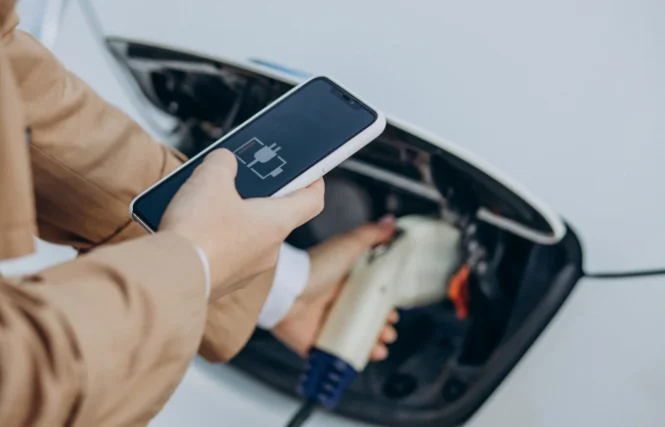Charging our smartphones has become a daily ritual, but the way we power up our devices can vary significantly. At home or in the office, a standard wall charger is the go-to option, while on the move, many rely on car chargers to keep their phones alive. At first glance, both accessories serve the same purpose: transferring power to your phone’s battery. However, there are key differences between a regular mobile charger and a car charger that affect speed, safety, compatibility, and overall performance. Understanding these differences will help you choose the right charger for every situation.
1. Power Source and Voltage Supply
The most obvious difference between the two chargers lies in their power source.
- Regular Mobile Charger: Connects to a wall socket and typically draws power from a stable AC (alternating current) supply. It then converts this power into DC (direct current) that your phone can use.
- Car Charger: Plugs into a vehicle’s power port (historically known as the cigarette lighter port) and draws power directly from the car battery, which is a DC power source. Because cars operate on 12V or 24V DC systems, car chargers must step down and regulate the voltage to ensure safe phone charging.
The conversion process differs, making car chargers more dependent on the vehicle’s electrical system stability, which can fluctuate while driving or starting the engine.
2. Output Power and Charging Speed
Not all chargers deliver the same charging speed, and this difference becomes more noticeable when comparing car chargers to wall chargers.
- Regular Chargers: Many wall chargers today come with advanced fast-charging protocols like Qualcomm Quick Charge, Power Delivery (PD), or proprietary fast charging systems. They often have higher power outputs (20W, 30W, even 60W for some models). Because they are plugged into a steady power grid, their output is consistent and reliable.
- Car Chargers: Modern car chargers have improved drastically and now support fast charging standards as well, but their performance can vary depending on the car’s alternator, wiring quality, and even whether other devices are drawing power from the same circuit. A basic, older car charger may only deliver 5W, resulting in slower charging compared to a quality wall adapter.
Choosing a certified, high-quality car charger can make a huge difference in speed while on the road.
3. Port Availability and Multi-Device Charging
While many regular chargers have one or two USB ports, car chargers often provide multiple ports so passengers can charge several devices at once. Some car chargers now include:
- USB-A and USB-C ports for universal compatibility
- Dedicated fast-charging ports for smartphones or tablets
- Smart current detection that adjusts output for each device
Multi-device charging is more common in car chargers due to the shared environment, whereas most wall chargers are designed for personal use or stationary charging.
4. Safety Features and Risks
Both types of chargers can pose risks if poorly made, but car chargers operate in a more unpredictable power environment.
- Regular Chargers: Receive stable power from the grid, with fewer voltage spikes. Certified chargers include overcharge, overvoltage, and short-circuit protection.
- Car Chargers: Are subject to power fluctuations when the car is turned on or off, or during heavy load usage. A good car charger needs robust built-in safety mechanisms to handle these variations and protect your phone from potential battery damage.
Using cheap, uncertified car chargers increases the risk of overheating, damaging your phone’s battery, or even causing electrical issues in your car.
5. Portability and Use Case
- Regular Chargers: Best suited for fixed locations like home, office, or hotel stays. Some are bulkier, especially high-wattage chargers for laptops or tablets.
- Car Chargers: Compact, lightweight, and designed for mobility. They are essential for frequent travelers, rideshare drivers, or anyone who spends a lot of time on the road.
Essentially, car chargers fill the gap when access to wall sockets isn’t possible, ensuring your phone never dies during long drives.
6. Compatibility Considerations
While both chargers generally work with most smartphones and USB-powered devices, compatibility can vary:
- Some regular chargers are optimized for specific brands (e.g., Samsung Adaptive Fast Charging, Apple 20W USB-C).
- Car chargers often focus on universality but may not always deliver brand-specific fast charging speeds unless they are high-end and certified for that technology.
Investing in a multi-protocol car charger ensures you get the fastest possible charging for your phone model.
Choosing the Right Car Charger: Why Quality Matters
The difference between regular and car chargers is not just about location but about engineering, reliability, and safety standards. A high-quality car charger mimics the efficiency of a regular wall charger while adapting to the less predictable conditions of a moving vehicle.
This is where Ronin, a globally accredited smart wearable and tech accessories brand, comes into the picture. Known for its ISO 9001 and UKAS-certified production standards, Ronin ensures every car charger it manufactures undergoes strict testing for safety, stability, and speed.
When you choose a Ronin car charger, you benefit from:
- Fast charging compatibility for both Android and iOS devices
- Multiple output ports for simultaneous charging
- Advanced protection circuits against power surges and overheating
- Durable, premium build quality designed for long-term use
Unlike generic, low-cost chargers that compromise on quality, Ronin delivers real, reliable power that keeps your devices safe and fully charged on every journey.
Final Thoughts
While both regular mobile chargers and car chargers perform the same basic function, the difference lies in how they handle power, speed, safety, and mobility. Regular chargers benefit from stable home electricity, while car chargers must adapt to fluctuating automotive power systems. Choosing a well-built, certified car charger ensures you get wall-like performance on the go, without risking your phone’s battery health.
For users who value speed, safety, and reliability, brands like Ronin provide high-quality car chargers engineered for today’s fast-paced lifestyle. A good car charger isn’t just an accessory; it’s your lifeline to staying connected wherever the road takes you.


